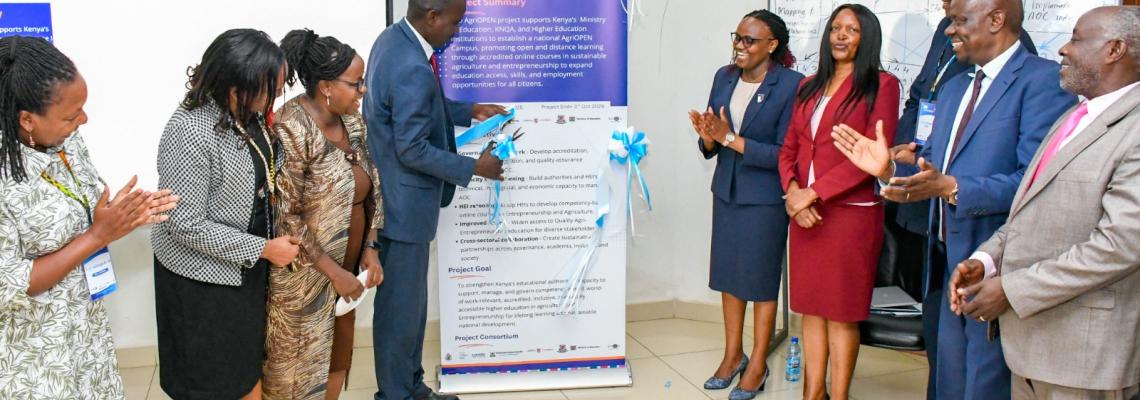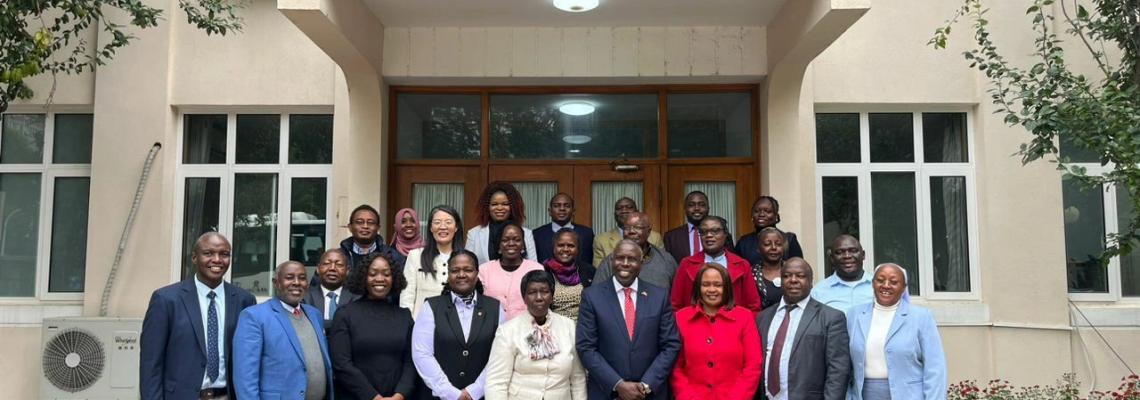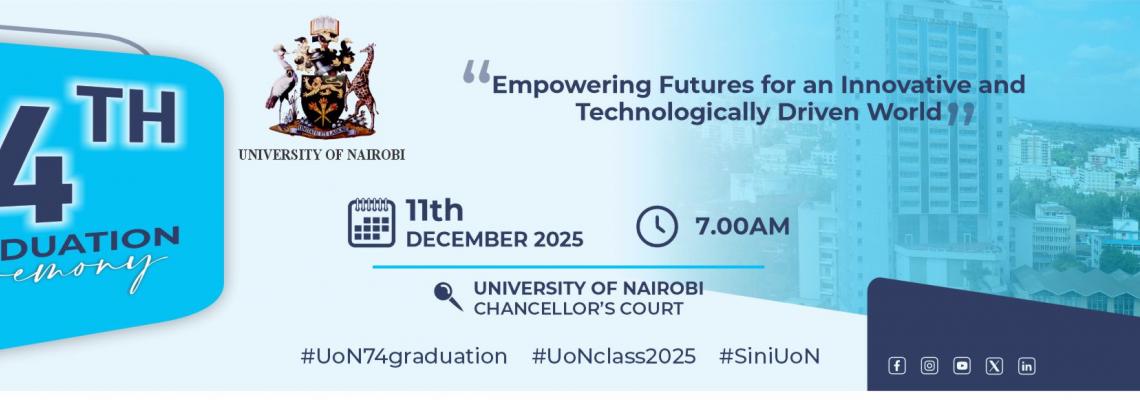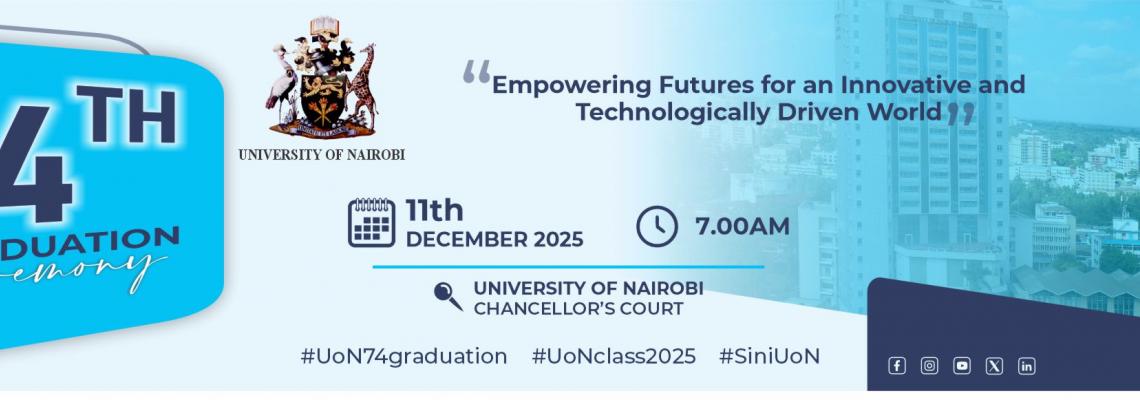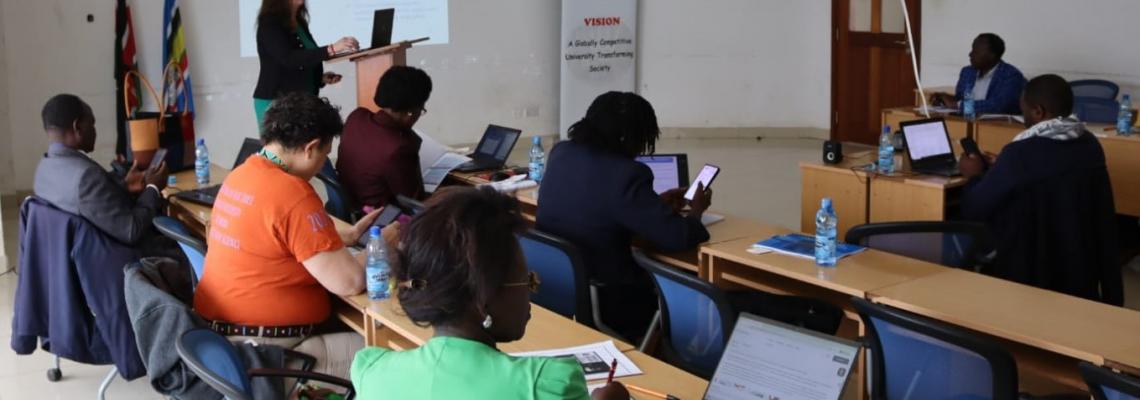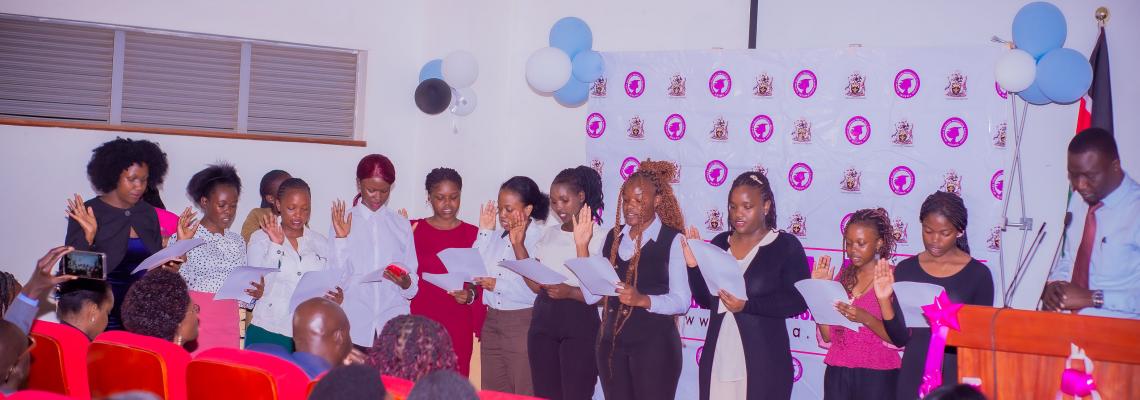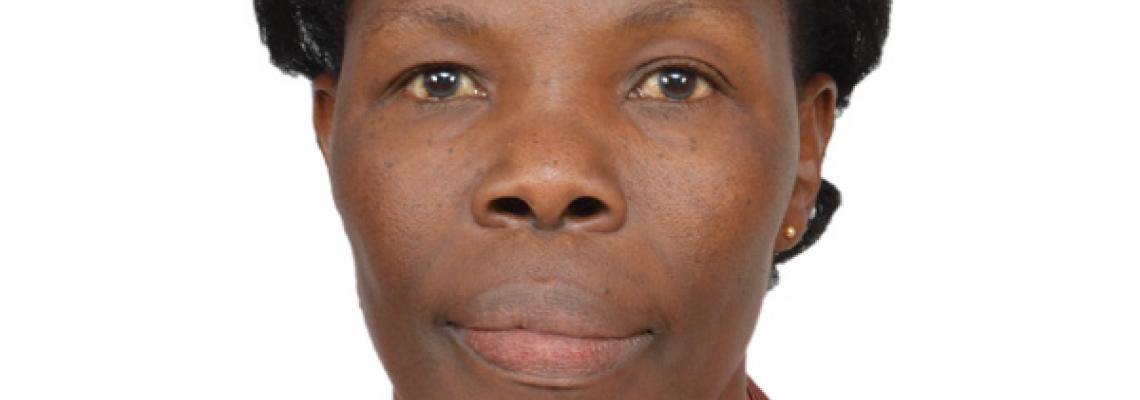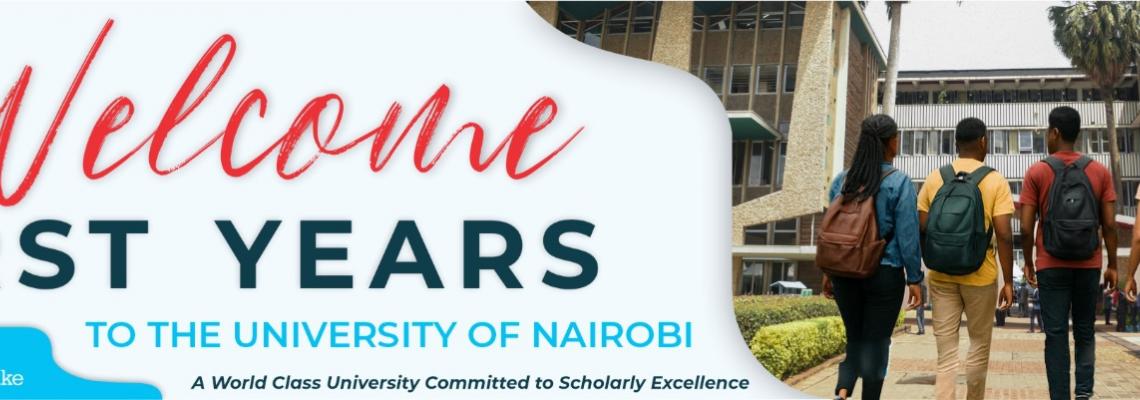The history of the Faculty of Education begun with the establishment of the Department of Extra-mural Studies in Makerere in 1953. With this establishment, the first resident tutor for Kenya was appointed in 1956. In 1963 the responsibility for organizing the Extra-Mural Studies in Kenya was transferred to a new Extra-Mural Department of the then University College, Nairobi.
In the same year, the College of Social Studies at Kikuyu, which had run an independent centre for residential adult education since 1961 , was absorbed into the University College, Nairobi. While retaining its residential status, the centre was then amalgamated with the Extra-Mural Department to form the Institute of Adult Studies. In 1966, the residential wing of the Institute was renamed the Adult Studies Centre.
In 1967, the Correspondence Course Unit was established as another arm of the Institute. The three wings of the Institute were officially referred to as the Extra-Mural Division, the Adult Studies Centre and the Correspondence Course Unit.
In 1983, the Institute was accorded college status and became the College of Adult and Distance Education following the recommendations of the Universities Inspection and Visitation Committee, which established six colleges of the University of Nairobi. A new faculty, the Faculty of External Studies, was then established comprising the School of Distance Studies, the Institute of Adult Studies and the Institute of Extra –Mural Studies as its Departments. The departments, now form the School of Continuing and Distance Education, and these were later renamed the Department of Distance Studies, the Department of Educational Studies and the Department of Extra Mural Studies. The other five Colleges established by the committee were: College of Agriculture and Veterinary Sciences (CAVS); College of Architecture and Engineering (CAE); College of Biological and Physical Sciences (CBPS); College of Health Sciences (CHS) and College of Humanities and Social Sciences (CHSS).
In 1988, the University of Nairobi revived the Faculty of Education within the College of Adult and Distance Education. For better and effective management, the College was then re-organized, re-structured and renamed the Faculty of Education (CEES). Sixteen years later, a centre for Open and Distance and E-learning was established within the College in 2005. Since then, the College has further been restructured into two schools in addition to the Centre, the School of Education and the School of Continuing and Distance Education, with the headquarters based at kikuyu Campus, 21 km west of Nairobi. In May 2007, the Public Universities Inspection Board recommended the then Kenya Science Teachers College (KSTC) to be made a constituent campus of the University of Nairobi in order to boost the efforts of the College in training teachers in Science Education at graduate level. The Government approved the recommendation and in October 2007, KSTC was handed over to the University and renamed the Kenya Science Campus.
The Learning and Working Environment
The Faculty has continued to maintain a serene environment conducive to teaching and learning. Every year, the Faculty plants trees at both Kenya Science and Kikuyu Campuses as part of the Environmental Stewardship activities of the Performance Contract. In 2013, for example, the Faculty planted a total of 2,450 trees. In addition a variety of learner support services as well as maintained physical facilities and infrastructure are provided, and these have enhanced the image of the institution.
Secretariats Hosted by the College
The Faculty hosts the following important Secretariats at Kenya Science Campus:
1. Kenya Public Universities and Colleges Placement Service
(formally Joint Admissions Board)
2. Quality Control Department
3. University of Nairobi Alumni Association
4. Women Studies Centre
5. Early Grade Reading Instruction Curriculum Centre
Collaborative Links and Partnerships
The Faculty has established new partnerships and links with the following institutions:
1. African Virtual University
2. United States Agency for International development
3. Linkoping University
4. International Rescue Committee
5. Regent University – M. Gail Derrick Consulting
6. University of Maryland
7. Coventry University
8. Makerere University
9. Hunt Alternatives Fund
Knowledge Exchange: Recent Conferences and Training Workshops Hosted:
The Faculty is active in contributing to knowledge exchange through participation of staff at international and local conferences and workshops. In 2013 alone, the Faculty hosted the following Conferences:
- Distance Education and Teacher Training in Africa (DETA). This conference was hosted in collaboration with the University of Pretoria from July 20th to August 1st, 2013 and attracted participants from 37 countries around the world. The venue was Kenya Science Campus.
- The 8th Pan African Reading for All Conference (PARFA). The conference was held from 12th – 16th August, 2013 and participants were drawn from 30 countries from within and outside the African continent. The venue was Kenya Science Campus.
- Association of Commonwealth Universities (ACU) Conference, Workshop and Centenary celebrations. The conference and workshop were held from 26th – 30th September, 2013 and participants were drawn from the Commonwealth countries around the World. The venues were Taifa Hall, Main Campus and Mount Kenya Safari Club, Nairobi
- The Africa for Research in Comparative Education Conference was held at Kenya Science in August, 2013. Participants were drawn from several African countries.
- Workshop on Peace Education was held on August 27th, 2013 at Silver Springs Hotel through a joint collaboration between the College and the University of Coventry, UK. Participants were drawn from the United Kingdom, Somalia, South Sudan, Uganda and Rwanda. The theme of the workshop was: Community tensions, dialogue and peace building in Kenya and the East African region.
Kenya Vision 2030 Flagship Programmes Launched:
The following Kenya Vision 2030 Flagship Programmes have been launched by the Faculty:
1. Bachelor of Education (ICT)
2. Masters of Education in Educational Administration and Planning
3. Master of Education in Educational Foundations
4. Master in Distance Education
5. Master of Arts in Peace Education
6. Master of Arts in Project Planning and Management
7. master of education in special needs education
8. Master of Education in Religious Studies
The Faculty also organizes public lectures and high profile visits by renowned scholars and key Government professionals for purposes of nurturing students on career development and emerging challenges. In 2013, for example, the Faculty invited a senior official from the Ministry of Education who gave a lecture on the implication of the Constitution of Kenya 2010 in the education sector in the context of devolution.
Skills Transfer, Community Outreach and Training
Technology transfer is a key indicator in the Performance Contract for the Faculty. In collaboration with the African Virtual University, the Faculty is involved in a training programme for In-Service teachers where trainees are equipped with basic skills in ICT. The trainees are also taken through a course on integration of ICT in education. On completion of the training, certificates are awarded at a colourful graduation ceremony held at Kikuyu campus. In 2013, a total of 47 trainees graduated.
At Kenya Science, the College also offers another type of training on Early Grade Reading Curriculum to In-Service Early Childhood Eduction teachers. This programme is supported by the United States Agency for International Development (USAID) and was launched in 2013. A total of 200 trainees are expected to graduate with certificates in 2014.
The Faculty has also been mandated to offer training in pedagogy and andrology to all academic staff in the University. The training turnover has risen as follows: 138 in 2007, 505 in 2008, 1000 in 2009. The training is a continuous process that takes care of new staff joining the University.
Academic Programmes Offered
Currently the Faculty offers a total of 58 programmes, ranging from certificate through diploma to degree level. These programmes cover a variety of disciplines and are offered using face-to-face, others are offered using a diversity of delivery modes.
At the undergraduate level, trainee teachers may specialize in Arts subjects (Bachelor of Education Arts), Science (Bachelor of Education Science), Information Communication and Technology (Bachelor of Education ICT), Physical Education and Sport (Bachelor of Education in PE and Sport), or Early Childhood Education (Bachelor of Education ECE).
At Postgraduate level, students may register for Postgraduate Diploma in Education (PGDE), or proceed for Masters or PhD in any of the following disciplines: Educational Foundations (Options: History of Education, Sociology of Education, Philosophy of Education, Adult and Community Development, and Comparative and Contemporary issues in education); Educational Administration; Educational Planning (Options Curriculum Studies; Economics of Education; Corporate Governance in Education; Education in Emergencies; Peace Education; Distance Education; Physical Education and Sport; Early Childhood Education; Special Needs Education, or Measurement and Evaluation. In addition to these disciplines, the College also offers the Project Planning and Management programmes at Diploma, Bachelors, Masters and PhD levels.
The programmes are taught not just at Kikuyu and Kenya Science Campuses, but also at regional centres in the country commonly referred to as Extra Mural Centres. So far, the College has established twelve such centres which are supported by 31 sub-centres. The regional centres are based at Kisumu Campus, Mombasa Campus, Kakamega, Nakuru, Lokichogio, Nyeri, Meru, Thika, Kisii, Nairobi (Main Campus), Kapenguria and Garissa.
Academic Staff
The Faculty has a total of 94 academic staff, who among other assignments teach the education component. Teaching Subject content is provided by staff from other colleges of the University. For B.Ed Arts, staff are drawn from CHSS, mainly the School of Economics and Faculty of Arts. For B.Ed Agricultural Education and Extension, staff are drawn from CAVS. For B.Ed Science and B.Ed ICT, staff are drawn from the following schools at CBPS: Mathematics, Physical Sciences, Computing and Informatics, and Biological Sciences. The same applies to B.Ed Physical Education and Sport (Science Option).
For the of programmes offered at Extra Mural Centres, the teaching force at the College is boosted by over 350 Part-time Lecturers who are competitively sourced. Most are alumni of the University of Nairobi and the minimum qualification is a Masters degree in the relevant discipline. A number of them are Ph.D holders, and professors working in other institutions.
ICT Infrastructure
The Faculty has a well-coordinated ICT infrastructure. All offices, the science and computer laboratories, libraries and lecture halls are fully networked and their vicinities branded with hot spots to enable staff and students access e-mail and visit the university website. As at March 2014, the College had a total of 545 computers and 145 laptops which are easily accessible to staff and students. A project is in progress to complete networking of all the halls of residence and Extra-Mural Centres, and also provide additional hot spots to enhance students’ accessibility to ICT services, including internet.
Student Enrolment and Completion rates
The Faculty has witnessed substantial growth in student enrolment in the last 10 years, rising from 6000 in 2004 to the current population of 16,642. This makes the College, the second largest of the six colleges of the University. Enrolment for PhD has grown from single digit figures prior to 2005 to 292 in 2014, while the number of those registered for other programmes stands at just over 3,000 (Masters), 9,208 (Bachelors), 32 (PGDE), 2,508 (Diploma) and 1,571 (Certificate).
Parallel to this increase in enrolment, the Faculty has also witnessed a very impressive turnover at graduation, hitting 100% completion rate for certificate, Diploma, Bachelors and Masters graduates as per the performance Contract of 2013. In 2013 alone, the Faculty graduated 6,000 students including 12 PhDs and 760 Masters.
Please feel free to visit the Faculty and see more for yourself.
PREVIOUS PRINCIPALS:
|
Prof. Peter Kinyanjui 1986 - 1988 |
|
Prof. Florida A. Karani 1988 - 1994 |
|
Prof. Lucia Omondi 1994 -2004 |
|
Prof. Henry W. Mutoro 2004 - May 2013 |
|
Prof. Isaac Jumba May 2013 - 2022 |
Prof. Jeremiah M. Kalai March 2023 - to date
MAJOR MILESTONES:
- Started as the Department of Extra -Mural Studies in Makerere in 1953.
- Between 1953 and 1988, the College witnessed substantial growth that involved reorganization and restructuring. It was finally re-named the College of Education
and External Studies.
- In 2006, further restructuring led to formation of two Schools and a centre, namely the School of Education, School of Continuing and Distance Education, and the
Center for Open and Distance Learning.
- Establishment of Extra-Mural Centres and Sub centres as arms of the School of Continuing and Distance Education. These have since increased from six in 2000
to 12 in 2013 with 31 sub-centres.
- More research and consultancies by lecturers.
- More collaborations such as;
- African Virtual University
USAID
Linkoping University Sweden
World Vision
- Launch of flagship programmes aligned to vision 2030 such as:
Bachelor of Education (ICT)
Master of Education in Educational Administration and Planning
Master of Education in Educational Foundations
Master in Distance Education
Master of Arts in Peace Education
Master of Arts in Project Planning and Management
master of education in special needs education
Master of Education in Religious Studies
- Increase in student enrolment from 1,500 in 1990 to 15,000 in 2013.
- Increase in revenue generation from 200 million to over 1.1 billion in 2013.
- Graduates produced per year from 1,000 in 2005 to about 5,000 in 2013.
- Revision of all curricula for all programmes.
- Construction of library
- Construction of offices and lecture theaters for School of Education
PREVIOUS DEPUTY PRINCIPALS - (KENYA SCIENCE CAMPUS):
|
October 2007 to May 2013 |
|
May 2013 to Date |
- MAJOR MILESTONES IN KSC:
- Transformation of the Kenya Science Campus from a Diploma teacher Training College (formerly Kenya Science Teachers College) to University status with University of Nairobi brand.
- Construction of Modern Science Laboratories-Physics, Chemistry and Biology, each with 200 student’s space capacity.
- Construction of a 500 capacity Lecturer theatre.
- Modernization of existing Infrastructure.
- Launch of Bachelor of Education (Science) programme.
- Launch of Bachelor of Education in ICT Programme.
- -Launch of Bachelor of Education in ICT Programme.

